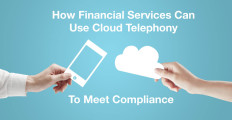In an era where financial transactions are increasingly conducted online, the security of financial assistant apps has become paramount. These apps, designed to streamline financial management and provide convenience, must also prioritize robust security measures to protect users’ sensitive information and assets. Whether you’re considering a budgeting tool, investment platform, or banking app, it’s essential to thoroughly evaluate the security features before entrusting your financial data to any platform.

The Importance of Security in Financial Assistant Apps
Before diving into the evaluation process, it’s crucial to understand why security is paramount in financial assistant apps:
- Sensitive Data: Financial assistant apps typically store sensitive information, including bank account details, investment portfolios, and personal identification.
- Financial Transactions: Many apps facilitate financial transactions, making them potential targets for cyberattacks and fraud.
- Trust and Reputation: Users expect these apps to uphold high standards of security to maintain trust and credibility.
Key Security Features to Look For
When evaluating the security features of financial assistant apps, consider the following aspects:
Encryption Protocols
Look for apps that use robust encryption protocols to secure data transmission and storage.
AES (Advanced Encryption Standard) with 256-bit encryption is considered highly secure.
Multi-Factor Authentication (MFA)
MFA adds an extra layer of security by requiring users to provide multiple forms of identification.
Common methods include SMS codes, biometric authentication (fingerprint or facial recognition), or authenticator apps.
Secure Communication Channels
Ensure that the app communicates with servers using secure protocols such as HTTPS to encrypt data during transit.
Avoid apps that transmit sensitive information over unsecured channels.
Regular Software Updates
Apps should receive regular updates to patch vulnerabilities and address security flaws promptly.
Check the app’s update frequency and the developer’s track record in addressing security issues.
Data Privacy Policies
Review the app’s privacy policy to understand how your data is collected, stored, and shared.
Look for apps that adhere to stringent privacy standards and allow users to control their data settings.
Security Audits and Certifications
Consider whether the app has undergone independent security audits or obtained certifications from reputable organizations.
Certifications such as SOC 2 (Service Organization Control) or ISO 27001 demonstrate a commitment to security best practices.
User Permissions and Access Controls
Evaluate the app’s user permissions and access controls to limit who can view, modify, or access sensitive data.
Strong access controls help prevent unauthorized access and reduce the risk of insider threats.
Protection Against Phishing and Fraud
Look for features that mitigate phishing attacks, such as anti-phishing filters and education resources for users.
Fraud detection mechanisms can help identify suspicious activity and prevent financial losses.
Incorporating Financial Literacy and Education
Beyond technical security features, a robust financial assistant app should also prioritize user education and financial literacy. Look for apps that offer educational resources, such as articles, tutorials, and webinars, to help users make informed financial decisions. A well-informed user is better equipped to recognize potential risks and take proactive measures to safeguard their finances. Additionally, features like budgeting tools and investment calculators can empower users to manage their money effectively and achieve their financial goals.
The Role of Regulatory Compliance
Regulatory compliance is another crucial aspect of evaluating financial assistant apps, particularly in the realm of personal finance and investments. Ensure that the app complies with relevant financial regulations and standards, such as GDPR (General Data Protection Regulation) for data privacy in the European Union or SEC (Securities and Exchange Commission) regulations for investment platforms in the United States. Apps that adhere to regulatory requirements demonstrate a commitment to transparency, accountability, and the protection of users’ rights and interests in the financial domain. By prioritizing both security features and regulatory compliance, users can confidently harness the power of financial assistant apps to enhance their financial well-being while minimizing associated risks.
The Emergence of Web3 Apps: Security Considerations
With the rise of Web3 apps, which leverage blockchain technology for decentralized finance (DeFi) and other applications, additional security considerations come into play. When evaluating Web3 financial assistant apps, consider:
- Smart Contract Security: Assess the security of smart contracts powering DeFi protocols, including code audits and vulnerabilities.
- Decentralization: Understand how decentralization affects security and the mechanisms in place to protect user funds.
- Wallet Security: Evaluate the security of the wallet integrated with the app, including private key management and recovery options.
Embracing Innovation: AI and Machine Learning
Many modern financial assistant apps leverage cutting-edge technologies such as artificial intelligence (AI) and machine learning to enhance security and provide personalized financial insights. These technologies can analyze vast amounts of data to detect patterns, anomalies, and potential security threats in real-time. Look for apps that employ AI-driven security features, such as anomaly detection algorithms and behavioral biometrics, to proactively identify and mitigate security risks. By harnessing the power of AI, financial assistant apps can adapt and evolve to combat emerging cyber threats effectively.
User Experience and Accessibility
While security is paramount, the user experience and accessibility of a financial assistant app also play a significant role in its effectiveness and adoption. Evaluate the app’s interface, ease of navigation, and availability across different devices and platforms. A user-friendly design and intuitive interface can enhance usability and encourage users to engage with the app regularly. Moreover, consider features such as multi-language support and accessibility options for users with disabilities to ensure inclusivity and reach a broader audience. A well-designed app that prioritizes both security and usability can streamline financial management tasks and empower users to take control of their finances with confidence.
Community and Support
Lastly, consider the community and support ecosystem surrounding the financial assistant app. Look for active user communities, forums, and support channels where users can seek help, share insights, and report security concerns. A responsive support team and timely updates from the app developer demonstrate a commitment to customer satisfaction and continuous improvement. Additionally, user reviews and ratings on app stores can provide valuable insights into the app’s reliability, security, and overall user experience. By fostering a supportive community and prioritizing user feedback, financial assistant apps can cultivate trust and loyalty among users while fostering a collaborative environment for addressing security challenges and enhancing the app’s features and functionality over time.
Financial Regulation and Compliance
In the ever-evolving landscape of financial technology, adherence to regulatory standards is paramount for ensuring the integrity and security of financial assistant apps. Financial regulations vary across jurisdictions, and apps must comply with applicable laws to operate legally and ethically. Whether it’s Know Your Customer (KYC) requirements for identity verification or Anti-Money Laundering (AML) regulations to prevent illicit financial activities, regulatory compliance helps safeguard users’ financial transactions and data. When evaluating financial assistant apps, consider whether the app transparently communicates its compliance with relevant regulations and demonstrates a commitment to upholding industry standards. By adhering to regulatory requirements, financial assistant apps not only protect users from potential legal risks but also contribute to the overall stability and trustworthiness of the financial ecosystem.
Prioritizing Security in Financial Management
In an increasingly digital world, the security of financial assistant apps is paramount to safeguarding users’ financial well-being. By carefully evaluating encryption protocols, authentication mechanisms, privacy policies, and additional security features, users can make informed decisions and mitigate the risks associated with online financial management. Whether evaluating traditional financial apps or exploring the possibilities of Web3, prioritizing security should always be a top priority to protect your financial assets and data from cyber threats.






















Leave a comment!